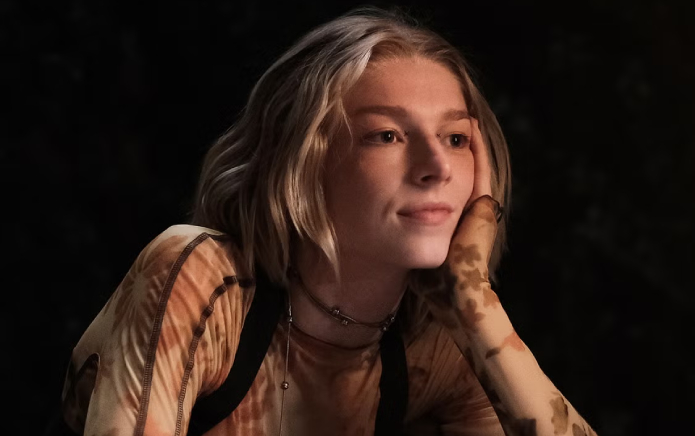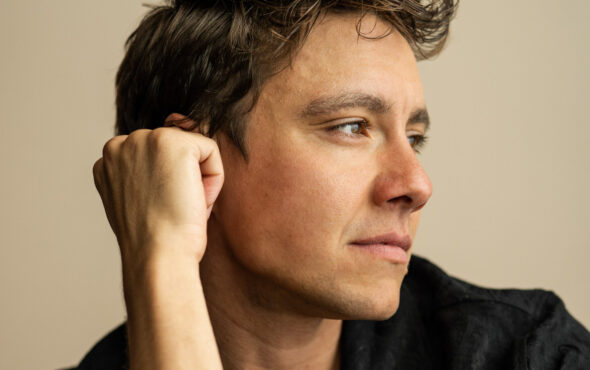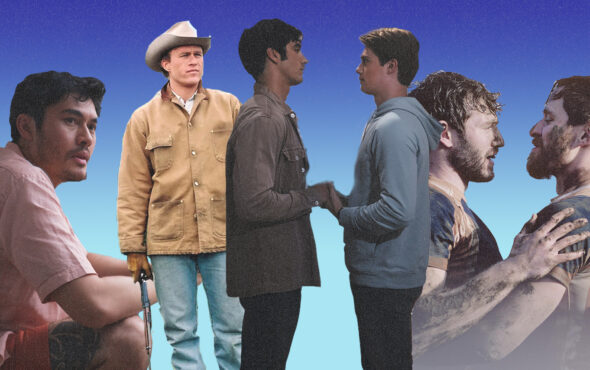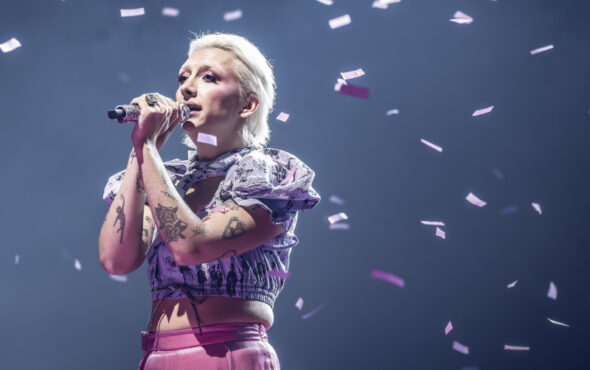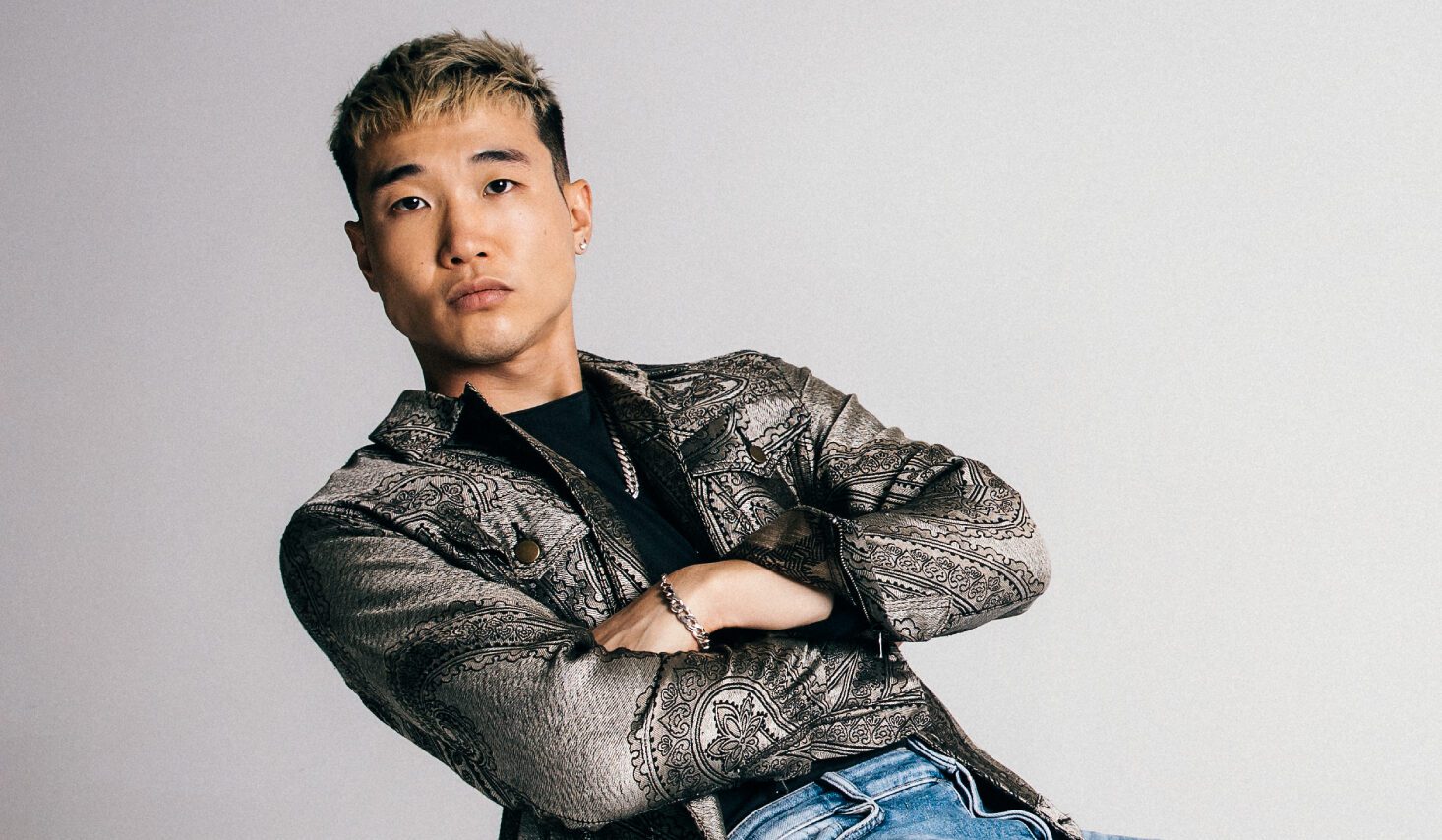
Thirty minutes into Fire Island, Joel Kim Booster’s character Noah playfully stresses to his best friend Howie (Bowen Yang) that getting his “pink little hole” penetrated is of extreme importance during their yearly respite to the gay mecca. Luke (Matt Rogers) and Keegan (Tomás Matos) reprimand Will (Conrad Ricamora) less than 10 minutes later for his lack of knowledge on Academy Award winner Marisa Tomei and her classic courtroom testimony as automobile expert Mona Lisa Vito in 1992’s My Cousin Vinny, while the other characters observe the debacle in (gay) shock. “That’s actually the problem with Hollywood,” Rogers’ character heatedly tells him, “it’s people who like you who forget about Marisa Tomei but they remember Alicia Vikander. Flop!” The Hulu comedy, directed by Andrew Ahn and written by Booster, is saturated with more moments like this that capture the unequivocal joy that comes with being a member of the “rainbow mafia” – instead of the constant strife that’s historically been depicted in mainstream media. “I grew up in what I call the height of The Laramie Project era of gay media. I love The Laramie Project, so no shade, but when I was a teenager, everything I was consuming from major studios was about tragedy,” Booster tells me over Zoom in his first official junket for Fire Island. “It was about death and homophobia and the trauma of coming out, which resonated with me at the time as a person who was coming out and experiencing a lot of that stuff myself. But now, in my 30s, I’ve had the privilege of living in Chicago, New York and now LA, where life has been fairly happy – especially the more gay people I met. I really wanted to show people that there is joy in the experience of being gay.”
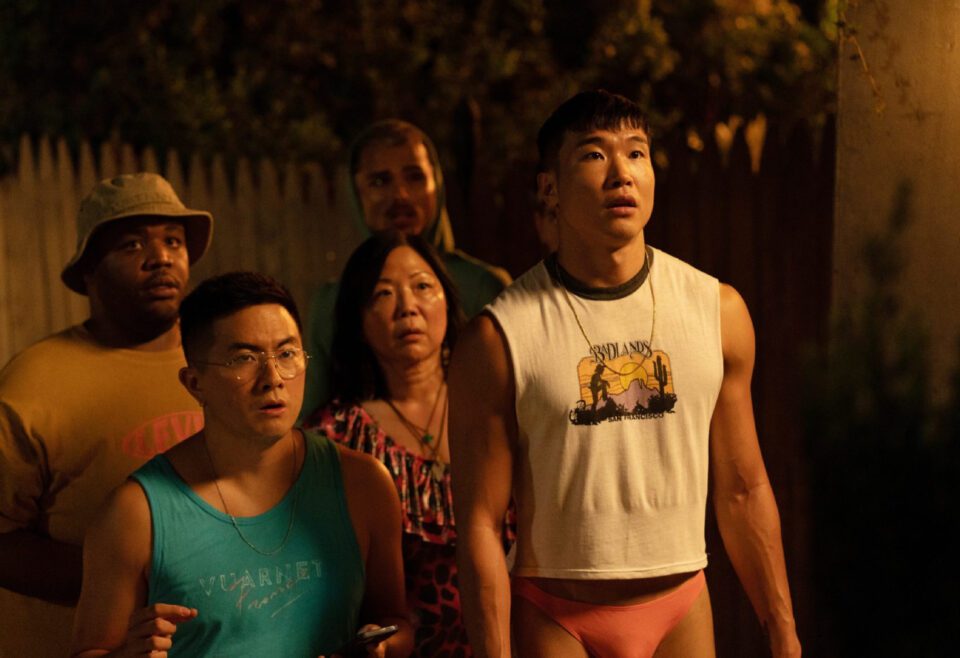
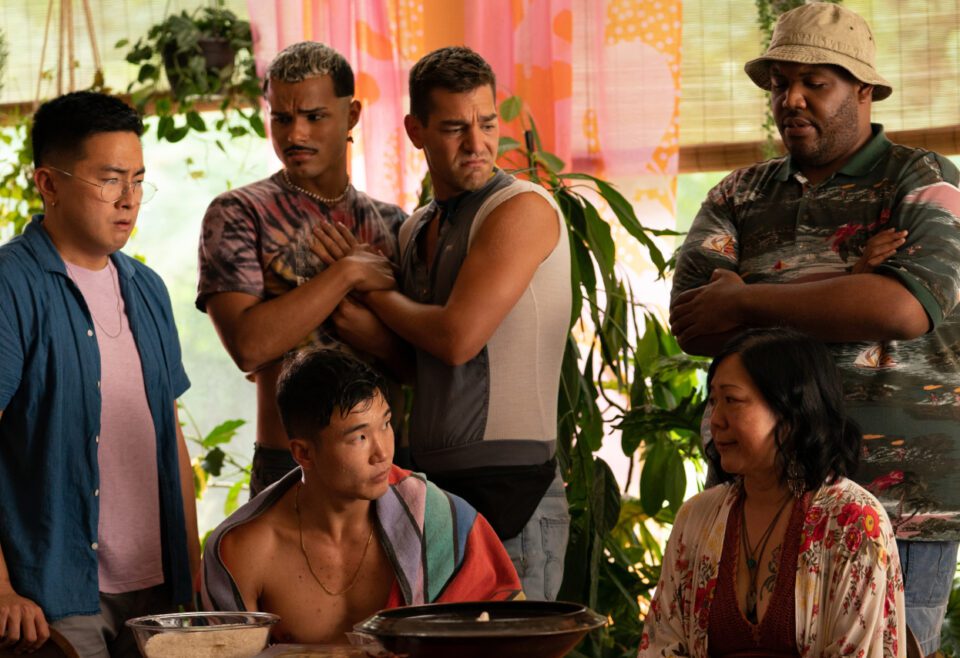
Also starring Margaret Cho, James Scully, Torian Miller, Nick Adams and Zane Phillips, Fire Island follows Noah and his queer circle as they take off on a week-long vacation to the titular LGBTQ+ hotspot in New York. The film’s premise was directly pulled from Booster’s experiences with the Pines – “I’ve fallen down the steps at the Blue Whale chasing a guy!” he laughs – as well as Jane Austen’s classic Pride and Prejudice, one of his favourite novels. According to Yang: “Joel had this idea for this movie the first time we went to Fire Island together in 2015. He brought Pride and Prejudice with him and he was reading it like, ‘Wow, a lot of this translates so neatly into the dynamics of this place, where people are obsessed with wealth and class and social standing and relationships.’” Originally intended to live on the now-defunct streaming service Quibi as a short 10-episode series, Searchlight Pictures upgraded Fire Island into a major motion picture, with the film set to premiere 3 June on Hulu in the United States and Disney+ in international territories. Booster’s character, Noah, is (seemingly) the de-facto leader of the group – the Elizabeth Bennett, but [insert limp wrist gesture here] – who makes a promise to Howie that he will not get laid until he does. (Friendship!) What makes Fire Island particularly historic – other than its unwavering commitment to authentically representing the queer experience – is the amount of legendary, LGBTQ+ Asian-American stars at the forefront: Cho as Erin, the “gay elder” and “mom” to the gang who annually hosts them at her Fire Island condo; Ricamora as Will, the “introverted” Mr Darcy type who regularly comes into conflict with Will; and Yang as Howie.
Although Booster and Yang have been best friends for years – having risen up in New York’s challenging ranks of live comedy together – collaborating on a project, let alone headlining one of the year’s most anticipated comedies, was once inconceivable to them. “I think conventional wisdom in the industry right now is that we check a lot of the same boxes, so we probably go for the same roles,” Booster explains of the entertainment industry’s prejudiced approach towards those of Asian descent. “But, co-leading a movie is not something that Bowen or I ever thought would be on the cards for us. It’s really wonderful to make a statement to the industry that it’s like, ‘No, we are two separate entities and just because we check a lot of the same demographics, it doesn’t mean we’re the same person.’” Reminiscing on how they broke into the industry together, Yang says the pair were “pounding the pavement” in NYC exploring the world of comedy, and therefore had “no pathway” to star in a movie together. “It just felt like a pipe dream,” the SNL alum tells me. “Now, to be talking to you and to be talking about the movie is pretty surreal.”
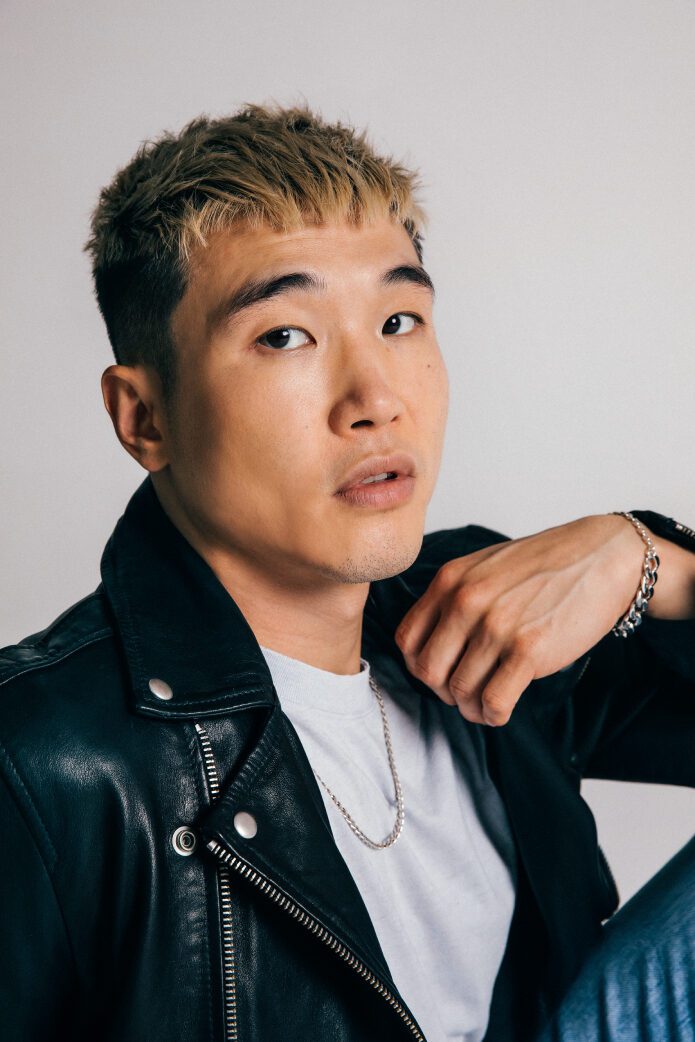
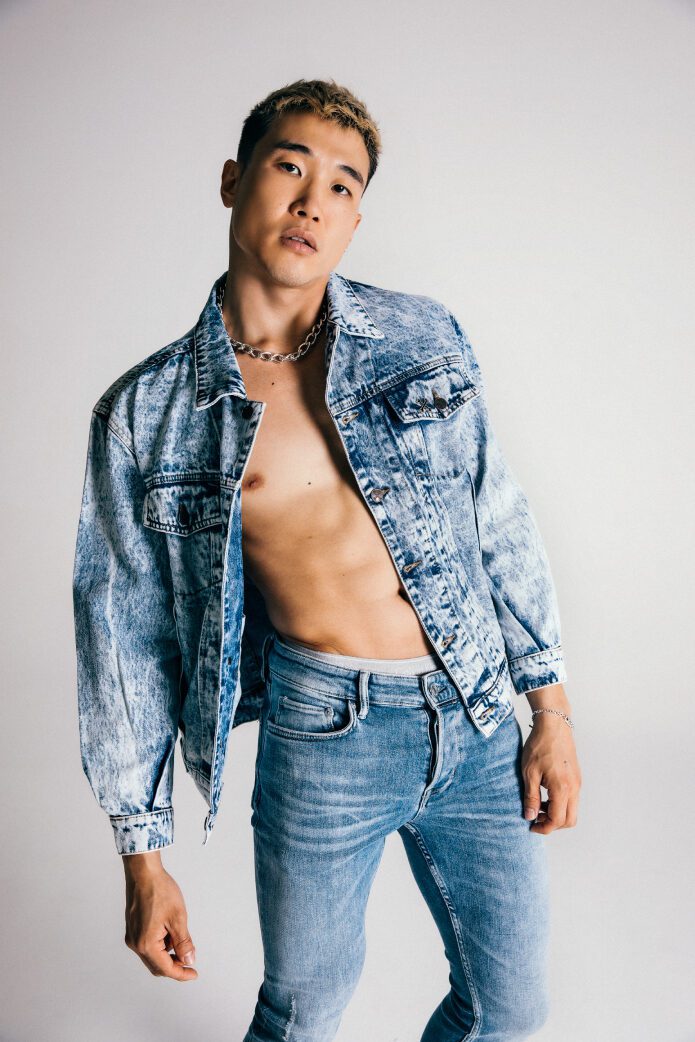
For Cho, the film was a no-brainer. Although Erin was originally written as a man, she reached out and requested a part in the film, which resulted in Booster revising the script. No biggie, obviously, it’s Margaret goddamn Cho. “They were trying to figure out where I would fit in, because they really wanted to put me in the movie,” she says, before praising the script’s groundbreaking representation: “I have never seen an Asian-American gay film like this, which is really coming to cope with your identity in the context of family, in the context of trying to hide your gayness or exist within white society as an Asian-American gay.” When I mention Cho to Booster (each of these interviews were conducted separately), the Comedy Central alum gleams. Describing her as the “genesis of so many parts of my personality,” it’s clear that working with the Emmy-nominated trailblazer was on his bucket list. “It was so surreal everyday acting with her, writing with her,” he enthusiastically recalls. “There were a couple times where she would ask me, ‘Is this right?’ and to have Margaret Cho defer to me and ask if something was right… It made my head explode.” Cho’s illustrious career, which includes iconic credits such as All American Girl, Drop Dead Diva and 30 Rock, had a similar impact on Ricamora as a queer youth, with the How to Get Away with Murder star commending the comedian for “changing what it means to be an Asian-American”. “It felt so empowering to watch her when I was coming out of the closet, and starting to figure out what it meant to be gay and to be Asian in this country,” he explains. “I felt like I had a friend and a sister when I watched her.”
Within minutes of watching Fire Island, the lack of heterosexual talent in-front and behind-the-scenes is pretty evident. Throughout the film, the straights are not afforded one minute of screentime – amen! – and queer culture is glorified and celebrated in a way that could only be written by someone of the LGBTQ+ experience. The lack of straight people – again, amen! – was a highlight for Andrew Ahn, with the director saying it allowed all of the creatives to accurately “explore the nuances” of living as LGBTQ+ people in a heteronormative world. “Being queer in this day and age is really difficult,” he shares. “We live a very strange existence where in some spaces, we feel so safe and happy, and in other spaces, we’re really scared and in danger. I think it’s constantly a navigation. I’ve made a sad gay movie, you know? I’ve done that in my body of work. For this film, I wanted to have fun, I wanted to laugh, I wanted to give the audience something to feel good about themselves. I think it’s really valuable to have dramatic queer films that are darker and tackle subjects that are difficult. I think that there’s a time and place for that. I think for me, this was a really great moment in time for us to be able to enjoy and be reminded of our happiness as gay people.”
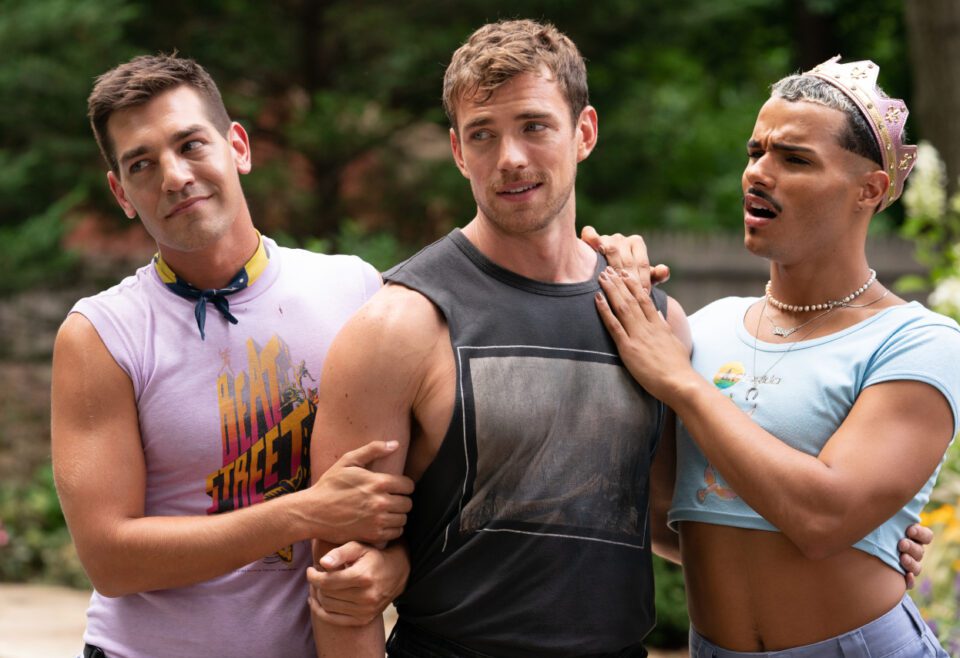
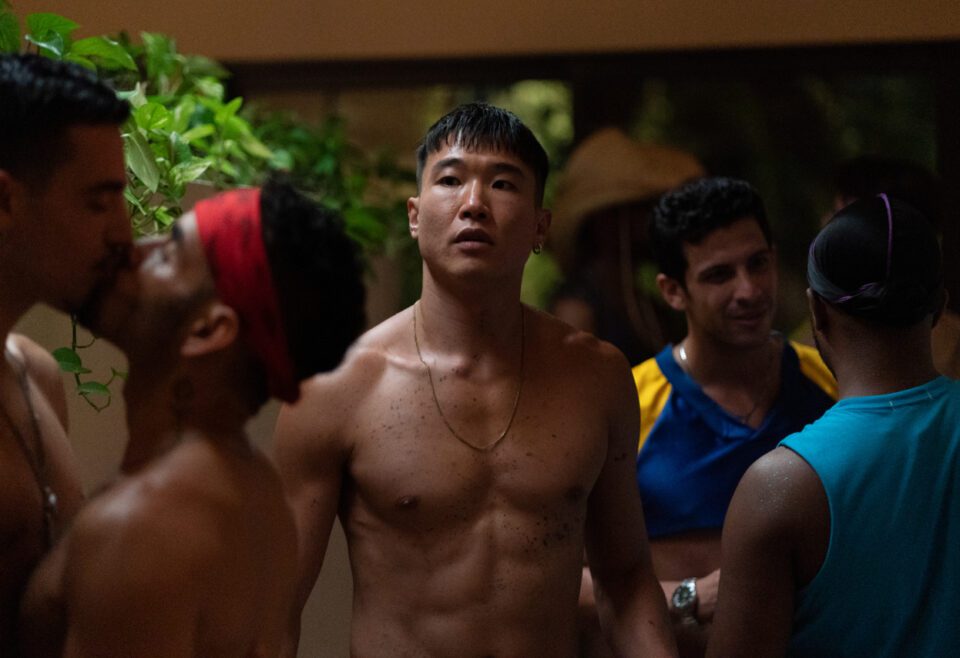
When writing the script, Booster says it was crucial for him to depict how queer people find solace through their chosen families, but also how the community can, at times, tear each other apart. “When we’re all together on an island, no straight people, nothing to oppress us from the external, how do we oppress each other?” Booster says. “It was really important for me to show that dichotomy of both the closeness that comes from chosen families and also the toxicity that can come when we’re suddenly emboldened by the things that, for years, gay culture has lifted up as important: body image, wealth, race.” (“Isn’t that a much more interesting movie than watching someone like, I don’t know, be bullied?” Yang adds.) There are specific moments in the film that originated from Booster and Yang’s first trip to Fire Island, such as a scene in which white muscular gays – “Instagays”, if you will – question why the diverse group have shown up to their celebratory bash. Reflecting on the inspiration behind the scene, Booster reveals that one of these gays – a real life Braden (played by the “wonderful” Aidan Wharton) – once told him, “‘I think you’re at the wrong party.’ That is an actual thing someone has said to me as I’ve entered a party on Fire Island. It’s happened a couple times.”
Ahn, the critically-acclaimed director behind dramas Spa Night (2016) and Driveaways (2019), says hiring queer talent was vital to the film’s success because they “bring a certain kind of nuance and humanity” to the story, such as the aforementioned scene, adding: “There’s nothing like a lived experience that can colour a performance so it feels authentic. I think, with the cast in this movie, it was a really great way to give queer actors opportunites to show off and say how talented we are as a community.” Ricamora agrees. For him, the reason why the movie is such a triumph is because the cast have “all lived a version of every character” in Fire Island. “We know what we’re talking about, we know what we’re experiencing in that movie,” he passionately states, before weighing in on the controversial debate of straight actors playing queer roles. “From a performer point of view, I love that everybody in the movie is queer in one aspect or another because we’ve seen shows and movies where people are played by straight actors. As someone who is LGBTQ+, it hurts, so it’s great to see that everyone in this film is openly queer. It means the world.” On set, Booster says there wasn’t a lot of “second guessing,” because of how his experiences – and others involved – directly mirrored the characters in the film. “When Andrew and I were constructing the film, it was coming from a place of honesty,” he says. “None of it feels like science-fiction. There was just no education involved. I also specifically asked a lot of Bowen, to really dig deep and touch on things that he’s experienced and that I know he’s experienced because of our friendship.”
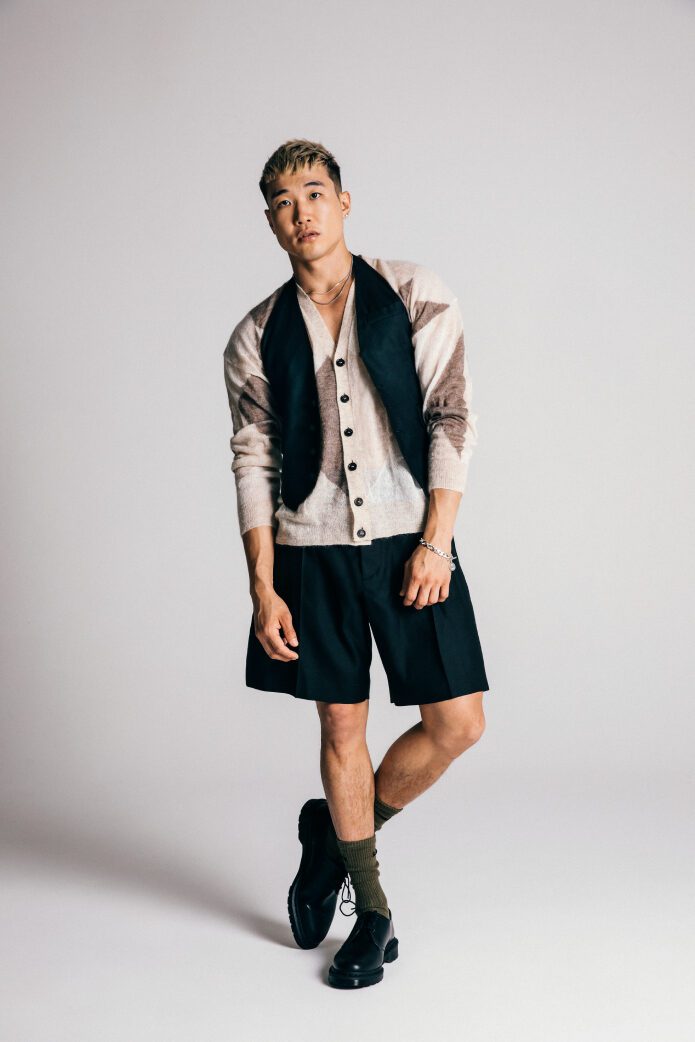
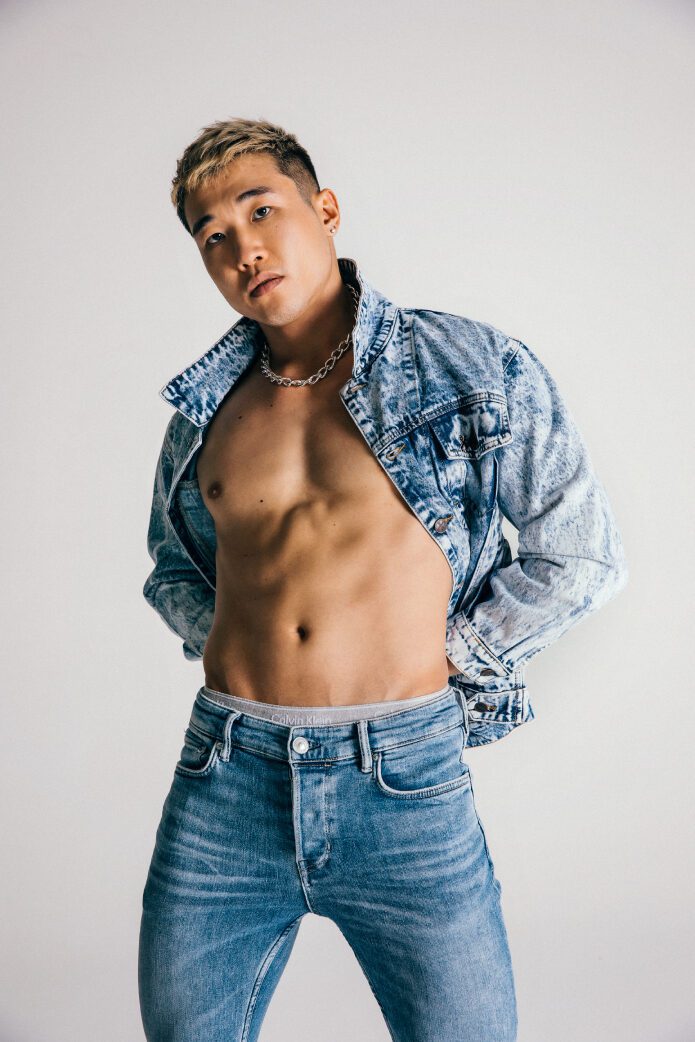
While there are elements of classism and racism scattered throughout Fire Island, homophobia simply doesn’t exist in the narrative. (Again, there are no straights, so…) In 2022, a queer film without anti-LGBTQ+ rhetoric still feels radical. It shouldn’t, but it does. “I remember sitting, terrified as a 16-year-old like, ‘Oh my god, what kind of world is waiting for me out there as a gay person? Is there happiness out there for me?’” Booster reflects on his childhood. “A big part of wanting to do this project was for me to say, ‘You will find your queer family, and through those people, you will have all of these wonderful experiences and create such an amazing tapestry of joy in your life. Not just “despite being gay”, but because you’re gay.’ That’s really what I wanted to get across with the movie.” Cho jokes that films centering on the HIV/AIDS epidemic and homophobia are the “primary colours” of queer cinema, while stressing the need for more colours in our “palette” that showcase queer joy. Of course, we need mainstream entertainment that educates audiences on the queer plight – It’s A Sin recently did this to tremendous affect. But, there needs to be a balance where queer characters aren’t constantly tormented – for example, Schitt’s Creek. “You need to have the subtlety of the lavender, the grey, the hot red of these underwear parties,” she says. “Everybody’s naked in the movie – except me, even I’m wearing a bikini, so that’s saying a lot. It’s very sexual without making it unwholesome. There is no judgement about the sluttiness. The sluttiness is actually a value, because we value experience over this false idea of what purity is.” Cho also highlights the amount of “fear around queerness” right now, particularly with the plethora of anti-LGBTQ+ legislatures introduced in the United States, such as Florida’s regressive ‘Don’t Say Gay’ bill. “American values fight against that with American gay values. But also, we have fun too and that’s what this movie is about; embracing that spirit of joy, summer and youth.”
Known for his role as Forty in the second season of Netflix’s hit drama You, James Scully plays Charlie, a kind-hearted paediatrician and love interest of Howie. The actor praises Fire Island for not conforming to queer cinema’s recurring need to “present queer culture” in a way that is “palatable” to cis-het audiences. “Just being like, ‘This is what queer culture looks like. This is how queer people are. Sorry if you’re not into it,’” he says. “The whole point is that we’re not really trying to live how you guys live anymore. We don’t want to do that. So, I think it is really important to get granular about the “pink holes” of it all until people know what it’s like on the inside, and to not be embarrassed or ashamed about it. We’ve watched movies about straight people doing weird sexual things to each other and talking about the wildest shit for a hundred years now. We want a seat at the table, at the weird sexual comedy table.” Conversation turns to Fire Island itself. Often referred to as America’s first gay and lesbian town, the island notably became a queer hotspot in the 1950s, a refuge for LGBTQ+ people to socialise and love one another without fear of judgement or persecution. “You can feel this energy of people who get to be themselves on an entire strip of land,” says Ricamora. “An entire city where there’s a sense of acceptance that we all have been craving as gay men and people that are in the LGBTQ+ community. I felt it when I got there.” Yang describes the island as a “portal into a new world” where straight people no longer exist and a place that “really liberates your tendencies – whether they’re good or bad.” Although the cast acknowledges that there’s a certain archetype of gay man that is widely associated with the island – we’ve said it once, we shant utter it again – Scully says it’s important for those who feel “othered” to flock to the island and “reassert what the natural order should be”.
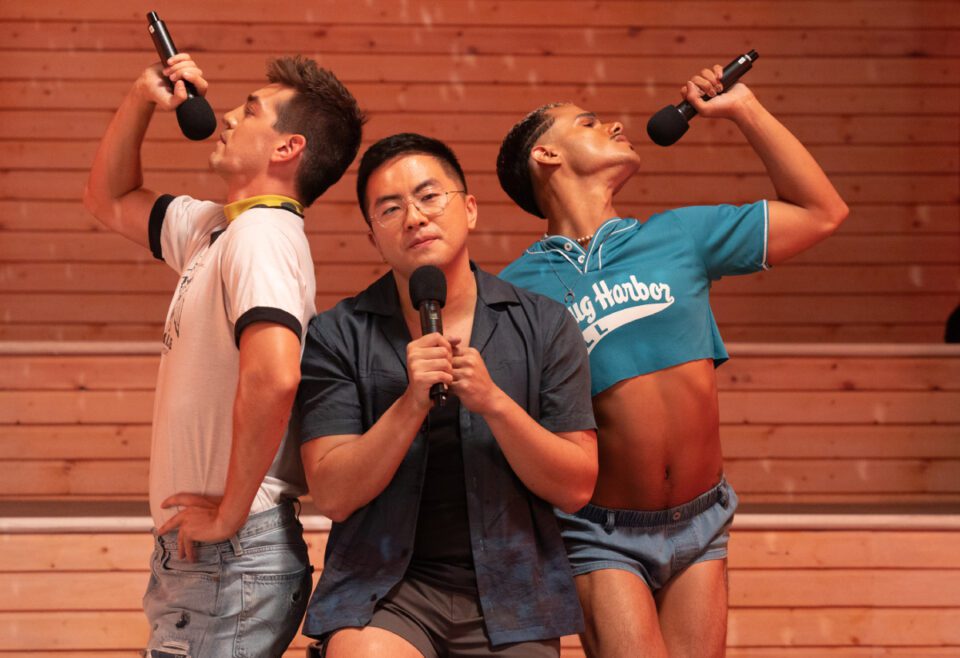
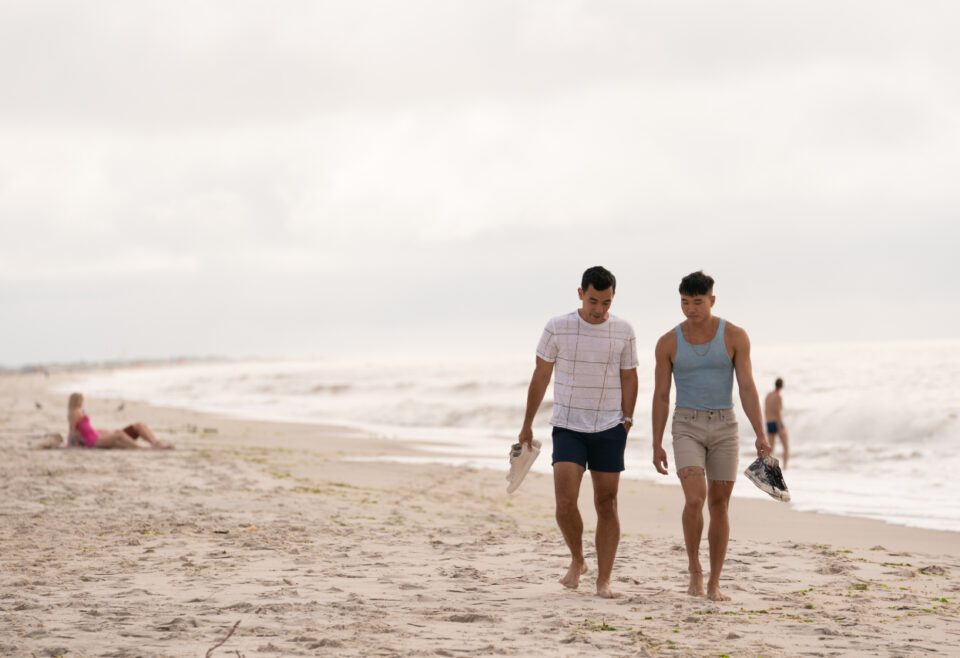
Ahn was drawn to how the film is “critical” of this aspect of gay culture. “As someone who had never been to Fire Island, but had heard a lot about it, I was worried when I first got the script thinking, ‘Oh, is this just going to play into these things?’” he says. “But actually, it’s really trying to call them out as bad, and then also find a new way to define a Fire Island experience: one that’s more inclusive, one that’s more based on friendship and organic connections.” Yang continues: “I think the movie does a really good job of acknowledging that assumption that a lot of people make. I had the same thought before I went for the first time. I was really pleasantly surprised when it wasn’t just homogeneously that. It was a little bit more multitudinous than I thought it would be.” Admittedly, that was my perception before I watched Fire Island. After watching the film three times, however, I came away from the film with two thoughts: one, get me on a damn plane to Fire Island immediately and two, being queer is fucking i-n-c-r-e-d-i-b-l-e. In the words of Cho, “It really lets everybody in on the secret that being gay is better! That’s why [straight] people are just scared of it, because it’s better!”
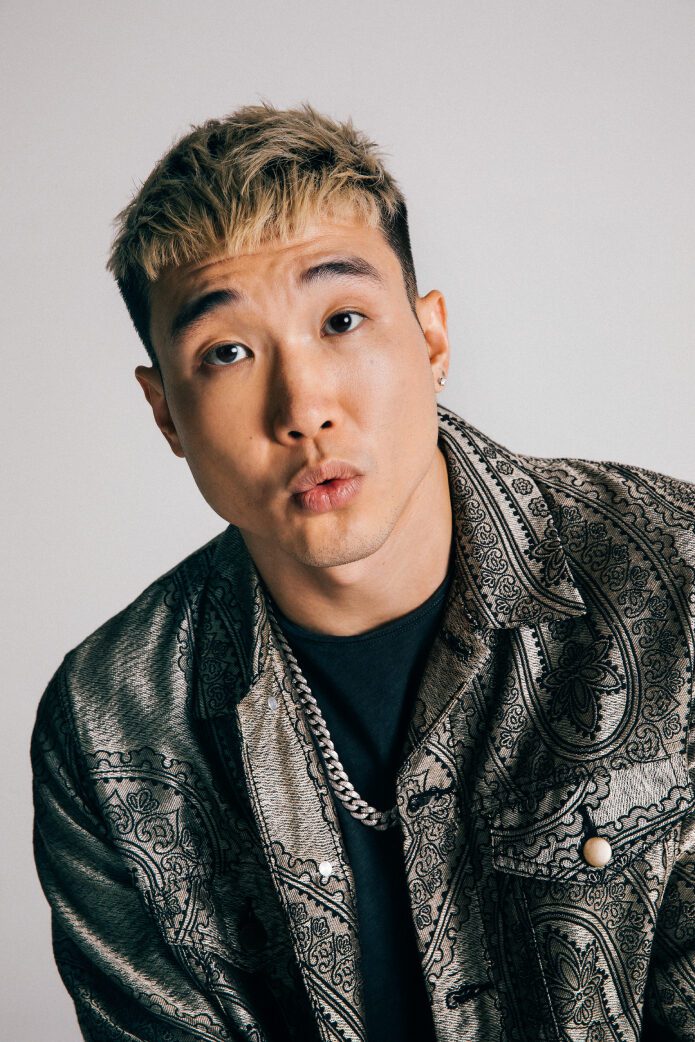
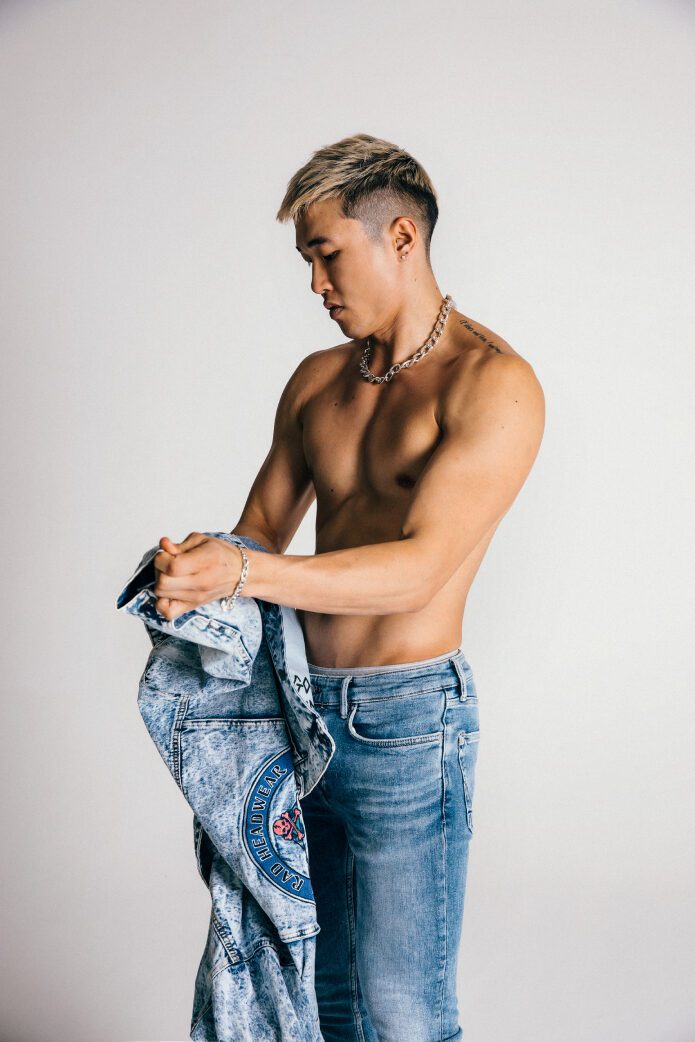
One of Booster’s central aims with this film is exactly that, for queer people to walk away from the film, not just feeling comfortable in their identity, but proud. With that in mind, Booster hopes the film entertains, but also educates audiences on the “breadth of experience” within the LGBTQ+ community, particularly those who are queer and Asian. “There’s usually only one of us in a movie, right?” he says. “So, we’re only seeing one specific story. I just wanted to feel like you’re getting so many different versions of a queer experience. Especially for Asian people, I just never saw myself on screen. I want people to realise that we’re more than just the token Asian friend. We are the story. I want people to understand that and feel empowered by that.” In one of Booster’s first interviews about the film, he playfully teased that he would like to make sequels to Fire Island in other popular LGBTQ+ destinations, such as Mykonos and Puerto Vallarta. Of course, all the cast who participated in this interview said they’d sign on in a heartbeat. Although Booster says he doesn’t feel “inspired” to write another gaycation film, he would do “anything” to work with them all again. “It’s not off the table!” he admits. “Maybe I’ll do an And Just Like That… We’ll return to Fire Island and see where these characters are in 20 years.” Don’t expect a certain Oscar winning Swedish actress to make a guest appearance, however. “I don’t know if I’ll be able to get Alicia Vikander,” laughs Booster. “She might be mad at me after this movie.”
Fire Island is now streaming on Disney Plus.
